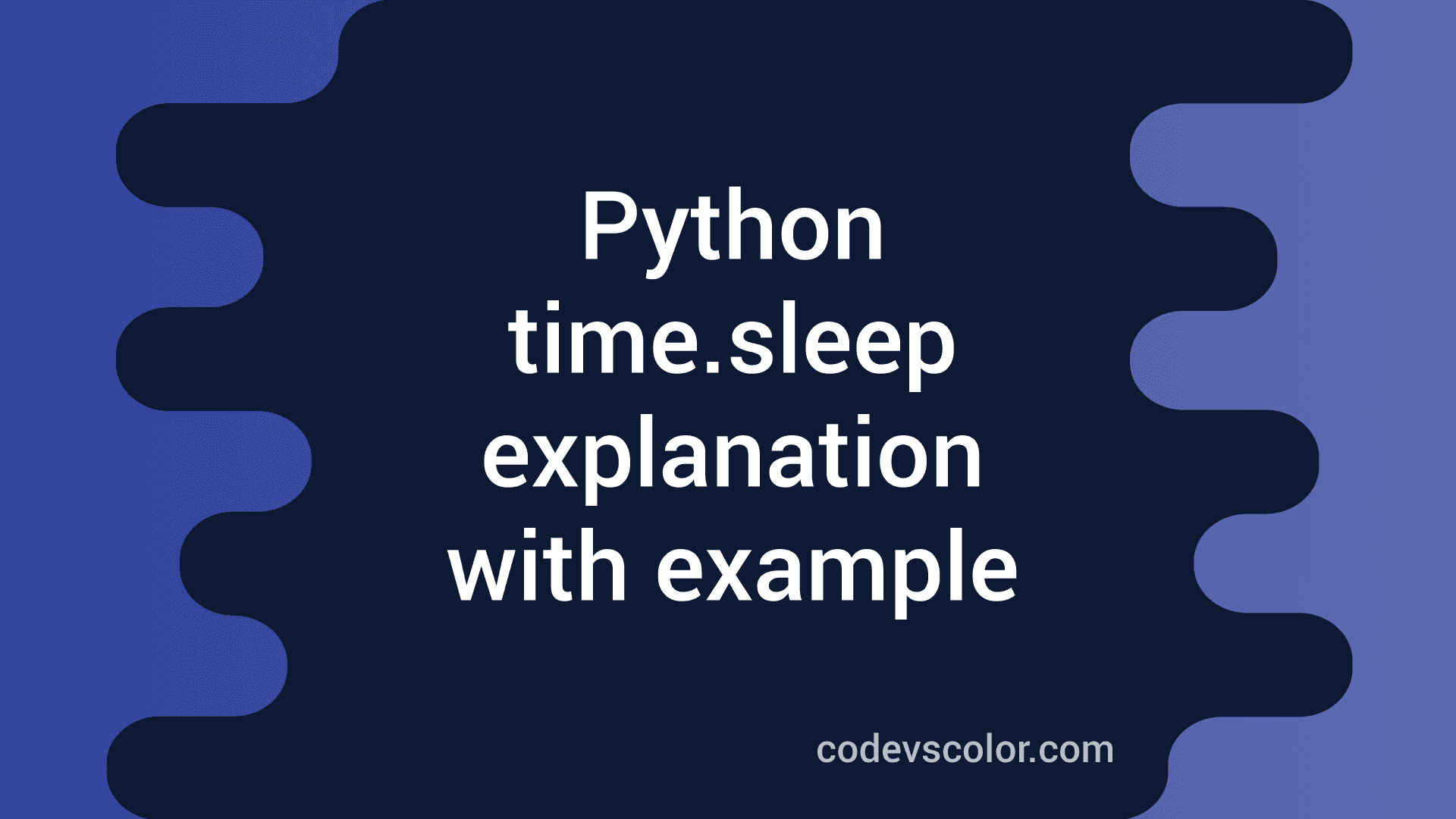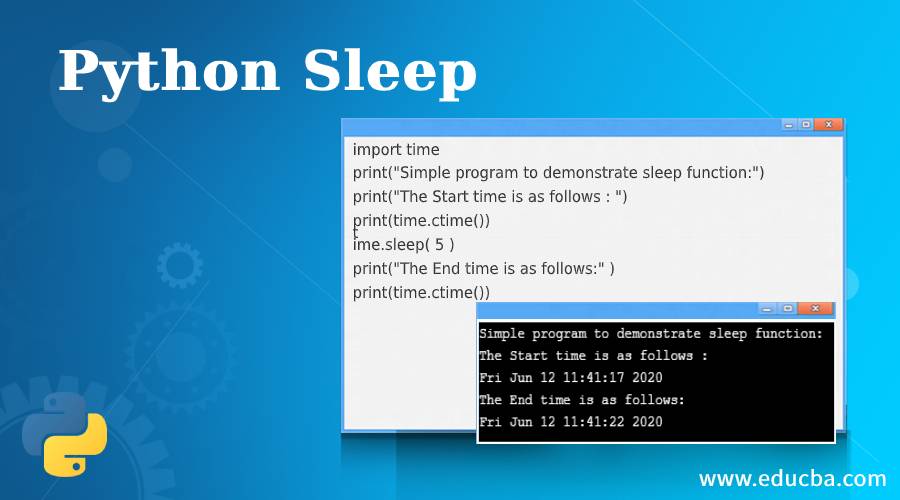Python sleep(): How to Add Time Delays to Your Code. Learn how to use Pythons built-in sleep () function and decorators to add time delays to your code. See examples of how to sleep for a specific duration, a random duration, or until an event occurs python sleep. Explore how to sleep in different contexts, such as threads, async IO, GUI, and more. python sleep. time — Time access and conversions — Python 3.12.0 documentation python sleep. time.sleep is a function that sleeps for a given duration in seconds since the epoch. It uses the platform C library function of the same name, which may have different semantics and precision depending on the platform. See the platform documentation and the other functions in the time module for more details.. Python sleep() Function (With Examples) - Programiz. Learn how to use the sleep () function in Python, a module that provides several methods to handle time-related tasks. See examples of single-threaded and multithreaded programs that use sleep () to suspend execution of the current thread or process for a given number of seconds.. python - How do I make a time delay? - Stack Overflow. 13 Answers Sorted by: 3444 This delays for 2.5 seconds: import time time.sleep (2.5) Here is another example where something is run approximately once a minute:. time.sleep() in Python - GeeksforGeeks python sleep. Learn how to use the time.sleep() function in Python to suspend execution for a given number of seconds. See syntax, parameters, examples and applications of this function with code snippets and output.. Python Sleep - time.sleep() in Python - freeCodeCamp.org. Learn how to use the time.sleep () function from the time module to create delays in your Python projects. See the syntax, examples and benefits of this built-in function that lets you specify the number of seconds to delay the current thread. python sleep. Learn the Basics of sleep() - Real Python. In this lesson, youll get to know the basic functionality of Pythons time.sleep (). time.sleep () is a function that you can use to instruct your code to take a break, and it comes in the time module that is included in the standard library of…. How to Make a Time Delay in Python Using the sleep() Function python sleep. Thats where Pythons time module comes in. time is part of Pythons standard library, and contains the helpful sleep () function that suspends or pauses a program for a given number of seconds: import time print (runs immediately) for letter in hello, world!: time.sleep (2) # sleep 2 seconds between each print print (letter) Output:. The Python Sleep Function - How to Make Python Wait A Few Seconds . python sleep. You can use Pythons sleep() function to add a time delay to your code. This function is handy if you want to pause your code between API calls, for example. Or enhance the users experience by adding pauses between words or graphics. from time import sleep sleep(2). Pythons time.sleep () - Pause, Stop, Wait or Sleep your Python Code. Pythons time module has a handy function called sleep (). Essentially, as the name implies, it pauses your Python program. The time.sleep ()command is the equivalent to the Bash shells sleep command. Almost all programming languages have this feature python sleep. The time.sleep () function. Python time.sleep() Function | DataCamp. In this tutorial, you will learn about the Python function sleep () that allows you to introduce a delay in the execution of your program python sleep. This is a handy function especially when your program is working with threads or even when you are working with graphics and animations.. Python Sleep Function: How to Add Delays to Code - Geekflare. In this tutorial, you have learned how to use Pythons sleep () function to add time delays to code. You can access the sleep () function from the built-in time module, time.sleep () python sleep. To delay execution by n seconds, use time.sleep (n). Also, youve seen examples of delaying subsequent iterations in a loop by different values, countdown .. How does the Python sleep function work? - IONOS



